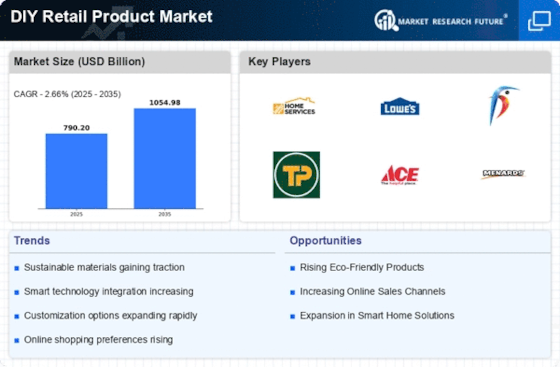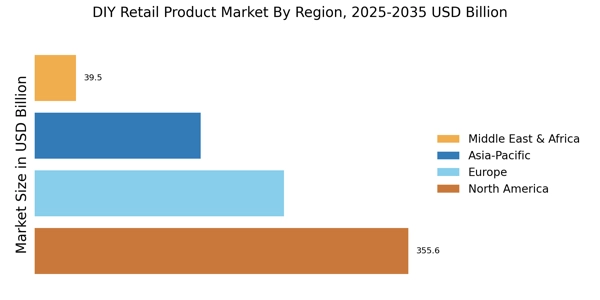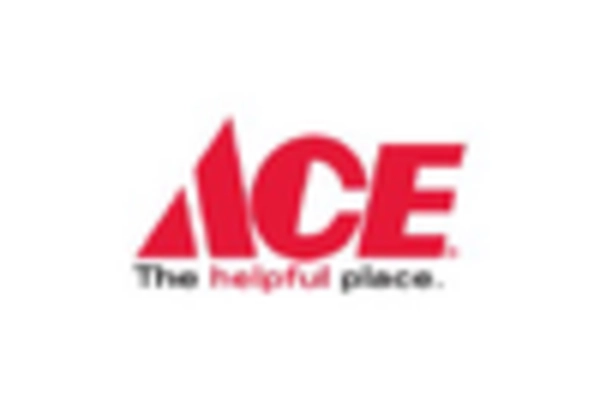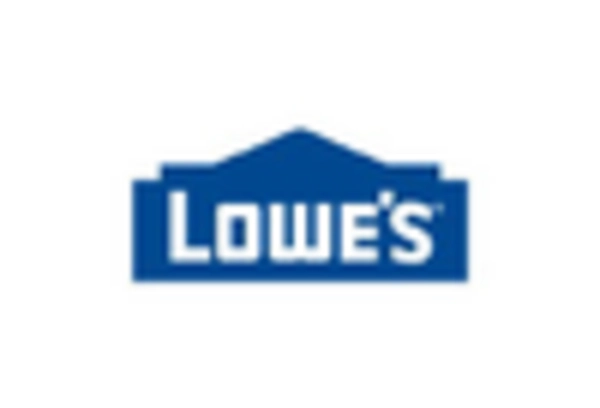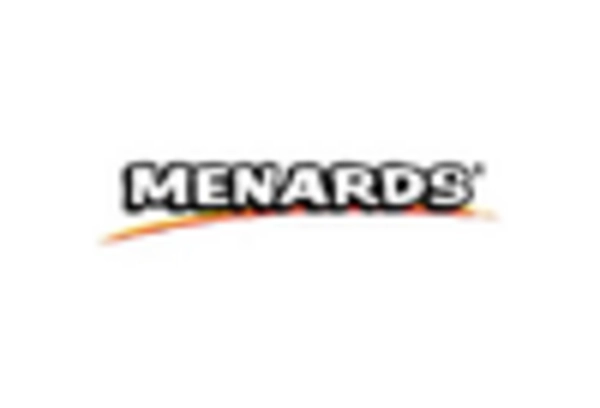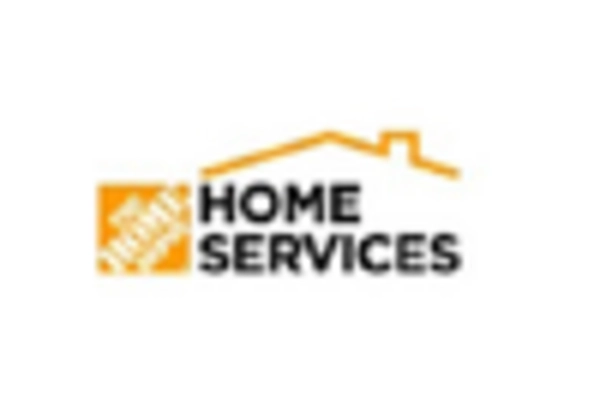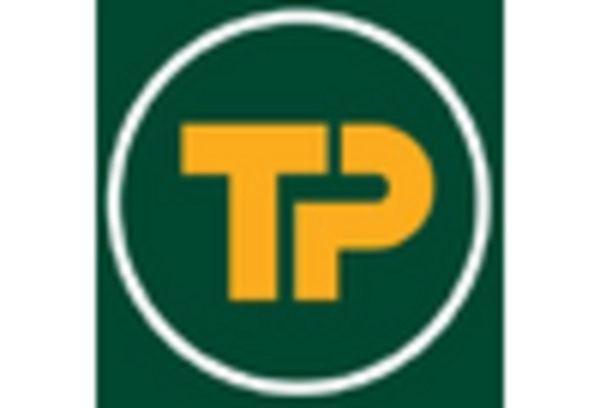Increased Home Improvement Activities
The diy retail product Market experiences a notable surge in home improvement activities, driven by a growing inclination among consumers to enhance their living spaces. This trend appears to be fueled by a combination of factors, including the rise in remote work and the desire for personalized home environments. Recent data indicates that approximately 70% of homeowners engage in DIY projects, reflecting a robust interest in home renovations. As individuals invest time and resources into their homes, the demand for DIY products continues to escalate, thereby propelling the growth of the DIY Retail Product Market. This inclination towards home improvement not only fosters creativity but also encourages consumers to seek out innovative and sustainable products, further enriching the market landscape.
Rising Interest in Sustainable Products
The DIY Retail Product Market is witnessing a pronounced shift towards sustainability, as consumers become more environmentally conscious. This trend is reflected in the increasing demand for eco-friendly materials and products that minimize environmental impact. Recent surveys indicate that over 60% of consumers prioritize sustainability when selecting DIY products, suggesting a significant market shift. Retailers are responding by expanding their offerings to include sustainable options, such as recycled materials and non-toxic paints. This focus on sustainability not only aligns with consumer values but also positions the DIY Retail Product Market favorably in a competitive landscape. As awareness of environmental issues continues to grow, the market is likely to evolve, with sustainability becoming a core component of product development and marketing strategies.
Technological Advancements in DIY Tools
Technological advancements play a pivotal role in shaping the DIY Retail Product Market. The introduction of smart tools and innovative equipment has revolutionized the way consumers approach DIY projects. For instance, the integration of augmented reality applications allows users to visualize their projects before execution, enhancing decision-making processes. Furthermore, data suggests that the market for smart home improvement tools is projected to grow at a compound annual growth rate of 15% over the next five years. This technological evolution not only simplifies complex tasks but also attracts a younger demographic, who are increasingly inclined to engage in DIY activities. As a result, the DIY Retail Product Market is likely to witness a transformation, characterized by a blend of traditional craftsmanship and modern technology.
Economic Factors and Consumer Spending Trends
Economic factors play a crucial role in shaping the DIY Retail Product Market, particularly in relation to consumer spending trends. As disposable incomes rise, consumers are more inclined to invest in home improvement projects and DIY activities. Recent economic data suggests that consumer spending on home improvement products has increased by approximately 10% over the past year, indicating a robust market environment. Additionally, the availability of financing options and promotional offers further incentivizes consumers to undertake DIY projects. This economic landscape not only supports the growth of the DIY Retail Product Market but also encourages innovation among retailers, who are keen to meet the evolving demands of their customers. As economic conditions remain favorable, the market is likely to continue its upward trajectory, driven by increased consumer confidence and spending.
Influence of Social Media and Online Communities
The influence of social media and online communities significantly impacts the DIY Retail Product Market. Platforms such as Instagram and Pinterest serve as vital sources of inspiration for DIY enthusiasts, fostering a vibrant community of creators. Data indicates that nearly 80% of DIY consumers utilize social media for project ideas and product recommendations, highlighting the importance of digital engagement in the market. This trend not only drives product visibility but also encourages collaboration among users, leading to the sharing of innovative techniques and ideas. Consequently, retailers are increasingly leveraging social media marketing strategies to reach potential customers, thereby enhancing their presence in the DIY Retail Product Market. As online communities continue to thrive, the market is poised for further growth, driven by the collective creativity and shared knowledge of its participants.


